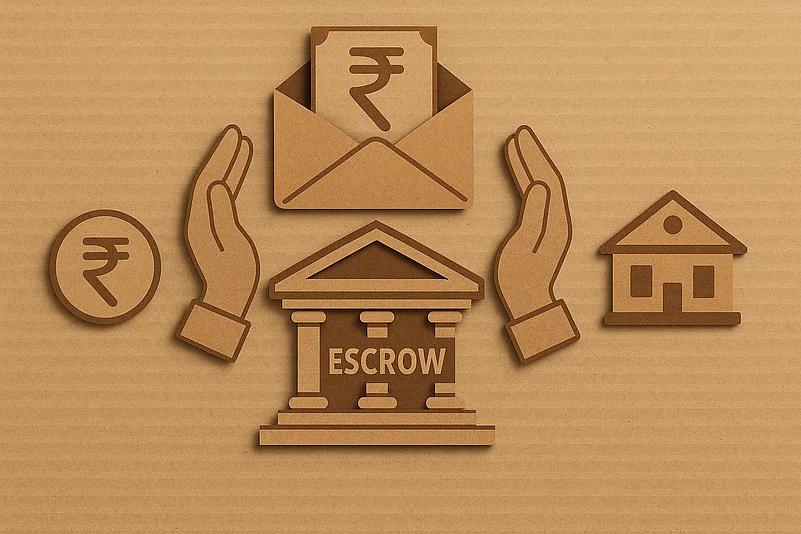Dealing with large sums of money requires a lot of trust between sellers and buyers. Thus there’s a need for a mechanism to ensure that neither party gets cheated in the transaction. An escrow account fulfills this need by acting as an independent "safety locker", where a third party, usually a bank, holds the money till all conditions of the deal have been fulfilled.
For example, in a property transaction, the buyer deposits funds into the escrow account, and upon registration or transfer of the property, the funds get disbursed to the seller. This in turn provides a credible way of conducting transactions so that no party gets a chance to misuse their authority in the process.
Escrow Accounts in Real Estate Transactions
Property transactions are among the most common uses of escrow accounts. These are deals that involve huge amounts of money over long time periods, which can result in a risk of fund abuse or slippage. To safeguard customers, the Real Estate (Regulation and Development) Act (RERA) mandates developers to keep 70 per cent of the funds received from homebuyers in a distinct project account. The money can only be withdrawn as the construction progresses.
Dr HP Singh, MD and chairman of Satin Creditcare Network Ltd., a non-banking financial company, says, “Escrow accounts provide an extra measure of financial security and transparency in property transactions. They act as a neutral space for homebuyers so that funds are only released if certain contractually defined conditions are met, such as once the buyer is handed over or registered for the property. This approach is especially reassuring in relation to formal agreements for under-construction properties."
Beyond Real Estate
Escrow accounts are not confined to the property industry, they are increasingly being used in high-value personal transactions for selling and buying second-hand cars, antiques, or luxury goods. In online marketplaces, escrow-like arrangements are used to hold payments until the buyer notifies the holder that the goods have been received in order.
Singh added, “Escrow accounts are becoming more common in high-value personal transactions. The seller is paid only when the buyer has confirmed receipt and satisfaction with the item, helping mitigate risks related to non-fulfilment, damaged goods, and fraud”
Key Factors to Remember
Although escrow accounts provide security, it's crucial to read the terms and conditions applicable to such accounts before using them. Banks in India usually charge between 0.1 per cent and 0.2 per cent of the transaction value, with a minimum annual fee starting from about Rs 25,000 and going up to Rs 1,00,000 or more for larger deals.
Individuals who wish to use escrow accounts should properly clarify when and how the funds will be transferred (for example, once property registration is completed, delivery of goods is confirmed, or necessary documents are verified).
Individuals who wish to use escrow accounts should also be mindful of the period for which funds are held in escrow accounts. Typically, funds are held for up to six months in escrow accounts under RBI and FEMA guidelines. Extending this period often requires regulatory approval, especially in high-value or cross-border transactions.
“Escrow services often charge administrative or processing fees. Be aware of conditions that allow or require the release of funds and the triggers for their satisfaction… Know the maximum time funds can be held, timelines for dispute resolution, refund processes, and the bank’s liability and procedure in case of disputes,” Singh said.
As online transactions become increasingly popular, real estate laws become tighter, and concern over fraud continues to skyrocket, escrow accounts can act as safety nets for secure financial transactions. They provide an open system that makes both parties responsible and guarantees that obligations are fulfilled before the money is exchanged.











